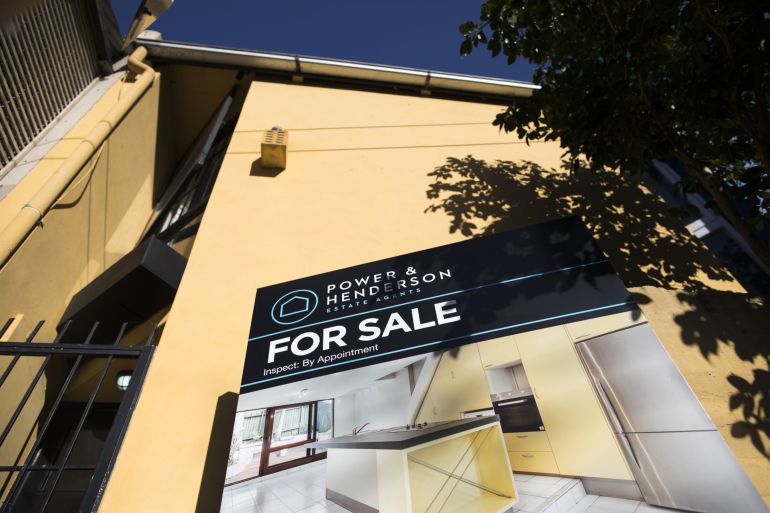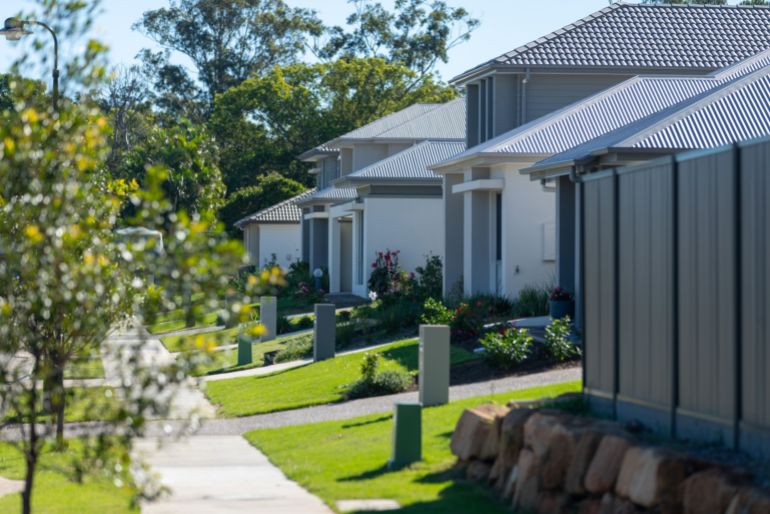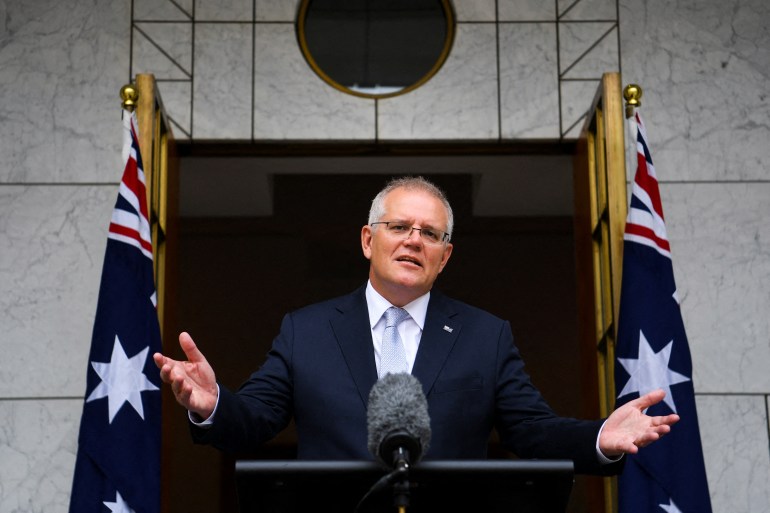‘Ridiculous prices’: Australians’ home ownership dreams turn sour
Some Australians see buying a home as increasingly out of reach after a near tripling of prices in the last 20 years.

Gary Jackson, a freelance photographer in Australia’s second-biggest city Melbourne, started shopping for his first house in 2017.
But after five years of searching, the 40-year-old singleton has given up. During the last 12 months, house prices in Melbourne jumped nearly 20 percent, raising the median house price in the city to more than 1.1 million Australian dollars ($832,000).
Keep reading
list of 4 itemsHas India’s central bank avoided tackling high inflation?
US approves $95m Patriot weapons support for Taiwan
Crisis-hit Sri Lanka is hosting thousands of stranded Ukrainians
“When I started looking five years ago, the prices were already too high,” Jackson told Al Jazeera. “At every auction I went to, the house sold for six figures more than the advertised price guide. Then COVID hit, my business disappeared overnight and I’ve been living on government handouts ever since.”
Experiences like Jackson’s are common all over Australia, where the average house price has nearly tripled in the past 20 years. During the same period, wages have risen by less than 82 percent, according to financial services firm CoreLogic.
Australia’s biggest city Sydney is now second only to Hong Kong as the least affordable city in the world to buy a house, according to the latest Demographia International Housing Affordability Survey – and it is not even the fastest rising market in the country.
That distinction goes to the chic beach town of Byron Bay located 750km to the north, where house prices have increased 212 percent over the past 20 years.

In January, the median price for a house nationwide passed the psychologically important threshold of 1 million Australian dollars ($757,000) – although creating a major talking point for the next federal election, which is expected to take place in May.
“If [this] doesn’t put housing affordability on the agenda for the government, I don’t know what will,” Nicola Powell, chief of research and economics at property marketplace Domain Group, said in a recent press release.
A complex web of factors has contributed to Australia’s housing affordability problem, including record low interest rates, easy credit due to financial deregulation, and a mismatch between housing supply and rapid population growth, which saw Australia’s population balloon by one-third during the last two decades.
Critics have also pointed to government policy incentivising middle-aged and elderly Australians to park their wealth in investment properties.
Those incentives include tax rules that encourage so-called negative gearing by allowing property investors to offset losses – such as when mortgage repayments exceed rental income – against their earnings.
“Negative gearing has not only pushed young people out of the housing market by pushing up house prices but the tax concessions also overwhelmingly go to those over the age of 40,” Matt Grudnoff, a senior economist, wrote in a blog for the Australia Institute, a think-tank in the capital, Canberra.
“About 70 per cent of the benefit goes to those aged over 40 while just 30 per cent goes to those aged 40 or younger. This represents a double hit for young people. They miss out on the negative gearing tax concession and they’re being priced out of the housing market.”
Political appetite for change
Nonetheless, neither the centre-right Liberal-National coalition government nor the Labor opposition party appears to have an appetite to change the system.
“Think about it. There are about half a million young Australians trying to get onto the property ladder but several million already sitting on it and enjoying significant gains,” Martin North, principal of Digital Finance Analytics in Wollongong, 85km south of Sydney, told Al Jazeera.
“We have got ourselves stuck in a situation with no way out, and the only thing governments can do is more of the same by giving incentives to first home buyers that let them borrow more.”
North, whose city saw the median property price climb 30.4 per cent last year, said tinkering with financial incentives would not solve a problem that has been three decades in the making.
“Some would say Australia’s economy is now a property economy with a bit of ordinary economic activity on the side,” he said. “So from an electoral perspective, politicians are always going to pivot toward property investors. They will make noise about housing affordability, but I do not think there is much chance of change.”
Last week, Prime Minister Scott Morrison downplayed the housing affordability issue by claiming it has always been difficult to get onto the property ladder in Australia.
“The hardest thing to do when you’re buying your first home – I remember this when Jenny and I were buying our first time, it was, it was hard back then, I believe it’s harder now – was the deposit you need to pull together, and that was a 20 per cent deposit,” he said on local TV.
Morrison also pointed to the recent expansion of a home loan guarantee scheme that allows first home buyers to borrow up to 95 per cent of the value of a property without having to buy mortgage insurance, which normally adds another 0.5 to 1.5 per cent to borrowing costs.

The expansion of the scheme, however, is only expected to help about 25,000 people who are already close to attaining home ownership, while the opposition has accused Morrison of trying to buy votes before the election.
Some figures argue the problem requires greater vision than exhibited by Canberra’s cautious political class.
“In the past, we had leaders in Australia with vision who built cities in the middle of nowhere like Canberra,” Daniel Lewkovitz, a first-time candidate for the Liberal Democrats, a minor party that promotes economic liberalism, told Al Jazeera. “But most politicians today only see as far as the next election instead of what this nation needs to prosper for the next 100 years.”
Lewkovitz said Australia should take inspiration from countries such as Israel, which built the city of Be’er Sheva in the middle of the Negev desert, and make greater use of its vast areas of uninhabited land.
“Despite Australia’s huge land mass, our population is heavily concentrated in very small areas and people who might wish to live outside these areas have very limited access to infrastructure and services,” he said.
“No government in recent times has introduced big ideas such as greening the desert with new cities.”
Meanwhile, for disillusioned Australians like Jackson, home ownership remains a fantasy, at best.
“Now there’s not even any point looking at houses,” Jackson said. “The banks won’t lend me money because my income is too inconsistent and even if they did, prices are now ridiculous,” he said.